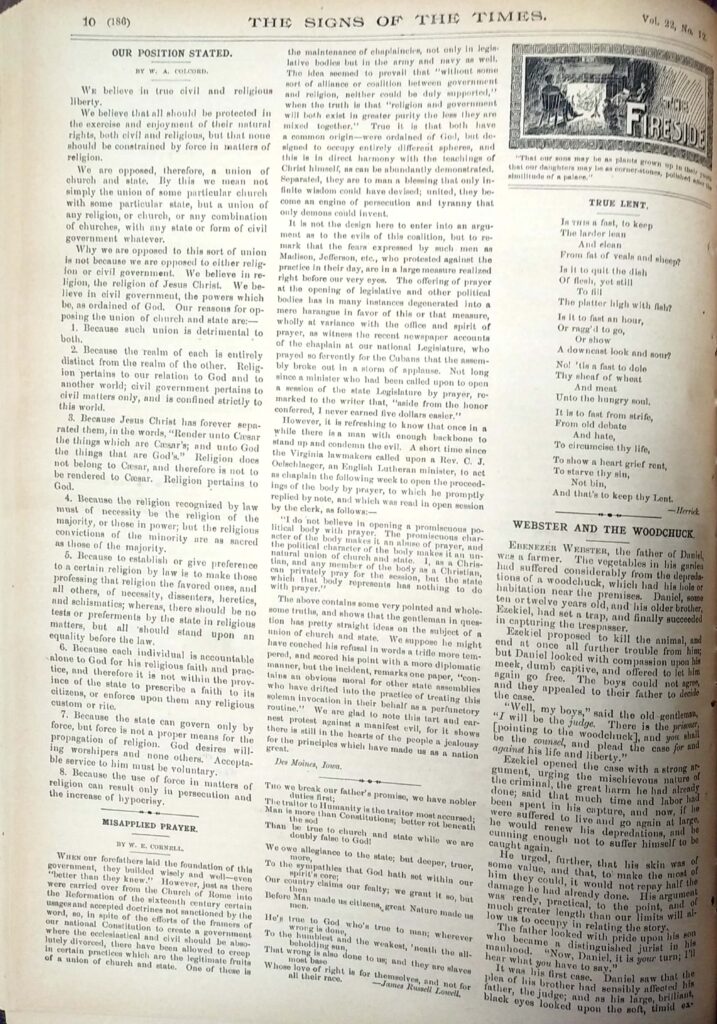Early Adventists had principled reasons for protesting the Sunday Law beyond simply “Mrs. White said,” being vocal and eloquent advocates of religious liberty. These writings are reproduced to educate and inspire modern readers regarding the same principles, that they may be prepared to take the same stand today whenever and wherever required.
We believe in true civil and religious liberty.
W.A. Colcord, Signs of the Times, March 19, 1896
We believe that all should be protected in the exercise and enjoyment of their natural rights, both civil and religious, but that none should be constrained by force in matters of religion.
We are opposed, therefore, to a union of church and state. By this we mean not simply the union of some particular church with some particular state, but a union of any religion, or church, or any combination of churches, with any state or form of civil government whatever.
Why we are opposed to this sort of union is not because we are opposed to either religion or civil government. We believe in religion, the religion of Jesus Christ. We believe in civil government, the powers which be, as ordained of God. Our reasons for opposing the union of church and state are:–
1. Because such union is detrimental to both.
2. Because the realm of each is entirely distinct from the realm of the other. Religion pertains to our relation to God and to another world; civil government pertains to civil matters only, and is confined strictly to this world.
3. Because Jesus Christ has forever separated them, in the words, “Render unto Caesar the things which are Caesar’s; and unto God the things that are God’s.” Religion does not belong to Caesar, and therefore is not to be rendered unto Caesar. Religion pertains to God.
4. Because the religion recognized by law must of necessity be the religion of the majority, or those in power; but the religious convictions of the minority are as sacred as those of the majority.
5. Because to establish or give preference to a certain religion by law is to make those professing that religion the favored ones, and all others, of necessity, dissenters, heretics, and schismatics; whereas, there should be no tests or preferments by the state in religious matters, but all should stand upon an equality before the law.
6. Because each individual is accountable alone to God for his religious faith and practice, and therefore it is not within the province of the state to prescribe a faith to its citizens, or to enforce upon them any religious customs or rite.
7. Because the state can govern only by force, but force is not a proper means for the propagation of religion. God desires willing worshipers and none others. Acceptable service to him must be voluntary.
8. Because the use of force in matters of religion can result only in persecution and the increase of hypocrisy.


Not sure why we keep repeating the Church’s historic opposition to Sunday laws when no Sunday law is an issue at this time in history and no religious dogma is being forced on American citizens?
The article does not mention Sunday, but articulates well the principles that lead to that protest. These principles are applicable in any age, to any church, and to any state; they are the foundational concept of “Protestantism.”